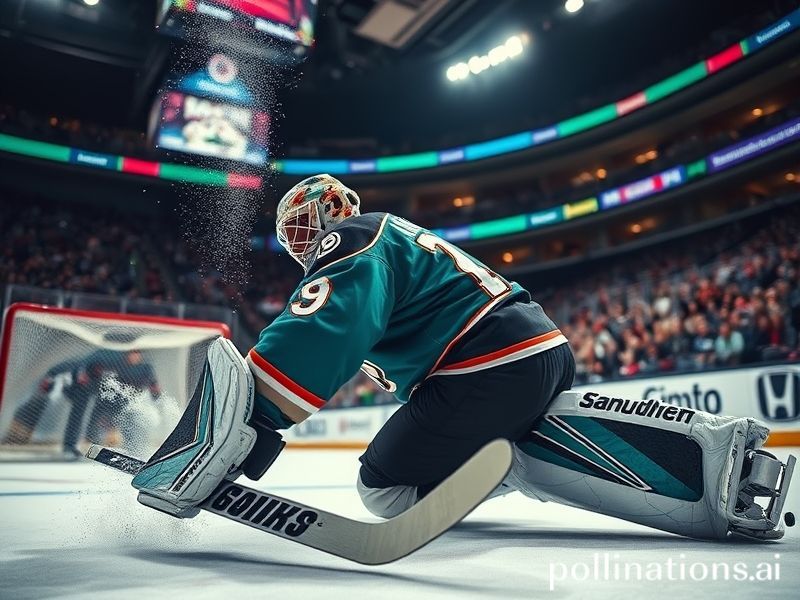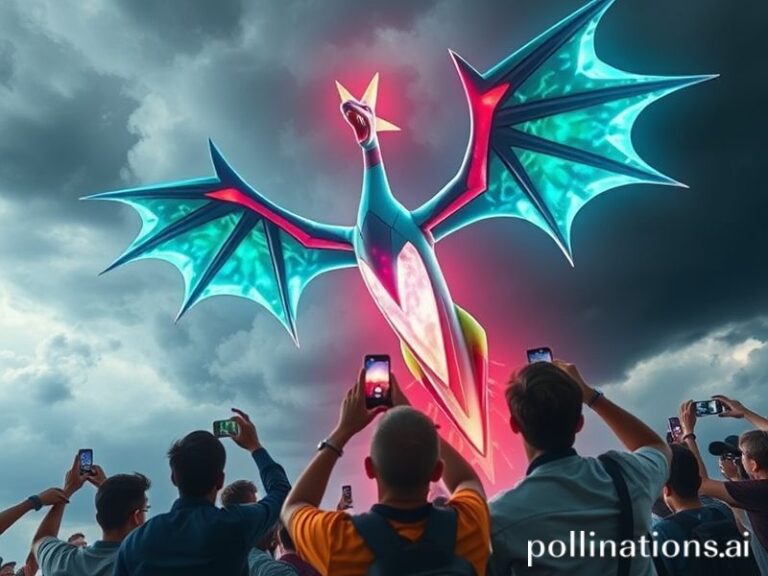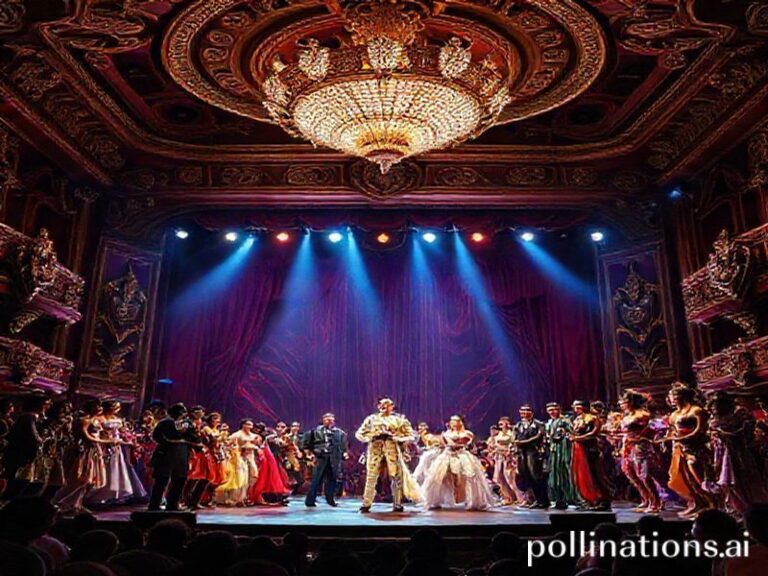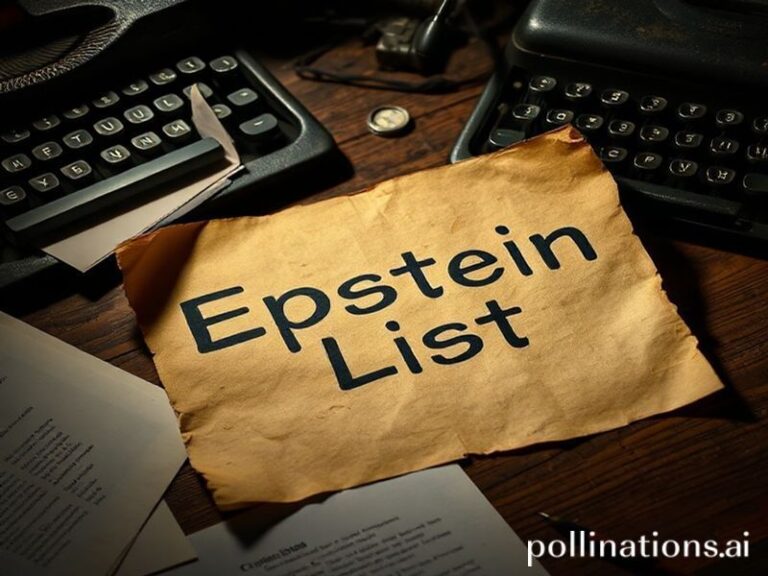Anaheim Ducks: How a Hockey Team Became the World’s Most Unlikely Soft-Power Weapon
From Anaheim to Ankara: How a Cartoon Waterfowl Became a Global Rorschach Test
By Our Correspondent, still jet-lagged in a Sheraton near LAX
ANAHEIM—The arena gates open at 5 p.m. and a flood of humanity pours in: Danish exchange students wearing Teemu Selänne jerseys they found on Depop, a South Korean tour group clutching Mickey Mouse ears in one hand and rally towels in the other, and a solitary Swiss banker who claims he’s here “for the asset-allocation metaphor.” Somewhere above them, a 30-foot inflatable duck bobs like a hallucination you can’t un-see. Welcome to the Honda Center, where the Anaheim Ducks—once a Disney marketing afterthought—now serve as a nightly seminar on late-stage capitalism, diaspora longing, and the universal human urge to scream at strangers in matching laundry.
Internationally, the Ducks matter precisely because they shouldn’t. In Finland, the franchise is treated as a satellite embassy; state broadcaster Yle still cuts to live look-ins whenever a former Duck records a point, like a NATO early-warning system for national pride. Meanwhile, in Russia, the team’s 2007 Stanley Cup victory is quietly studied at the Higher School of Economics as a case study in how oligarchic resources (looking at you, Mr. Samueli) can purchase legitimacy faster than a Siberian pipeline deal. Even in India, where ice is mostly found in gin, the Ducks’ logo appears on knock-off phone cases in Mumbai’s Linking Road markets—right next to Tupac and Pikachu—because nothing says “global village” like intellectual property whiplash.
The roster itself is a miniature United Nations with dental plans. This season’s lineup features a German goalie who speaks five languages but still can’t translate “traffic cone” into on-ice positioning, a Czech sniper whose Instagram stories are subtitled in Cyrillic for his Belarusian fiancée, and an American captain who thinks “Brexit” is a protein bar. Their locker-room playlist alternates between reggaeton, K-pop, and whatever passes for country music in Alberta—proof that Spotify diplomacy works better than the actual State Department.
Off the ice, the Ducks are a petri dish for every socio-economic fever dream currently circulating the planet. Season-ticket prices now outpace median household income in 43 UN-recognized countries, creating a fan base that skews toward tech bros timing power-play goals with Ethereum dips and Korean chaebol heirs researching “experiential Americana.” The team’s newfound sustainability initiative—bamboo straws, carbon offsets, the full Greta-adjacent package—has been applauded by European think tanks and simultaneously undermined by the fact that the Zamboni still runs on the tears of season-ticket holders.
Yet the real geopolitical theater happens in the stands. During a recent game against the Maple Leafs—a franchise so tragically Canadian it apologizes for existing—a group of expat Hong Kongers unfurled a protest banner reading “Free the Ducks.” Security, trained since 2020 to spot political messaging faster than a TikTok trend, descended with the efficiency of a Swiss boarding school. The banner was confiscated; the protesters were escorted out; the jumbotron cut to a toddler in a duck costume dancing to “Sweet Caroline.” Somewhere in Beijing, a mid-level censor took notes.
Then there’s the merchandising. The Anaheim Ducks have quietly become the world’s most efficient laundering mechanism for cultural nostalgia. A vintage “Mighty Ducks” Starter jacket—originally stitched in Honduras for $4.17—now retails on Harajuku’s Cat Street for ¥38,000, worn by teens who’ve never seen ice outside a matcha latte. Economists call it Veblen goods; the rest of us call it the inexorable march toward a future where identity is purchased by the gram on StockX.
As the final horn sounds and the arena empties into the California night, the inflatable duck deflates with a sigh that sounds suspiciously like collective disappointment. Outside, rideshare queues stretch past the hot-dog stands, each Uber a tiny embassy ferrying citizens of nowhere back to their Airbnb enclaves. The Ducks lost 4-2, but the real scoreboard reads: Globalization 1, Local Meaning 0.
And still, somewhere in Reykjavik or Riyadh, a child is Googling “how to ice skate,” seduced by a streaming highlight of a breakaway goal scored by a man whose name they can’t pronounce. The duck abides, waddling across borders with all the grace of late capitalism in goalie pads—equal parts absurd, aspirational, and utterly unstoppable.







